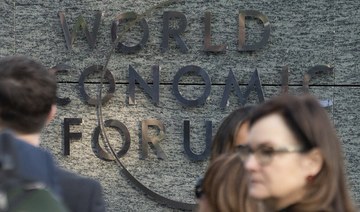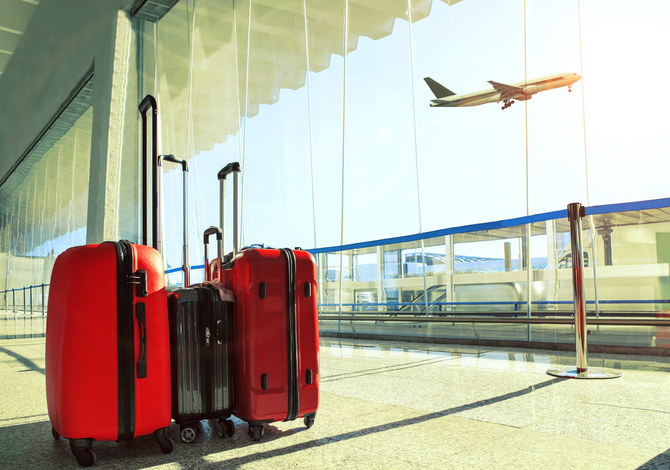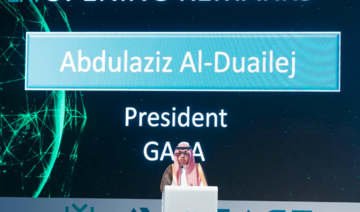GENEVA: Experts at the World Economic Forum on Wednesday agreed that inclusion, sustainability and societal resilience should be at the forefront of global economic growth efforts in light of changes in the economic landscape, including the advancement of artificial intelligence, the green transition and demographic changes.
During the second day of the “Growth Summit: Jobs and Opportunities for All” in Geneva, Switzerland, economists, ministers and policymakers called for better integration of urgent priorities such as reducing inequality, addressing climate change and managing the disruptive power of new technologies.
Saudi Arabia’s Minister of Economy and Planning Faisal Alibrahim said that desirable growth “builds on people and ideas,” adding that “it needs to be an inclusive, sustainable growth.”
This was especially important, said Alibrahim, when taking into account the intersection of economic opportunity, social responsibility and social development globally, “especially as demographic profiles are changing.”
“At the intersection of these three things, we have what we call inclusive growth,” he said, highlighting that “it would be a shame and a waste” if, at the end of this disruptive period, “we do not crack the code on inclusive growth.”
Experts at the summit did not reach a consensus on whether there would be a recession in 2023. The Chief Economists Outlook, launched during the event, showed that 45 percent of the participants expected a recession while 45 percent believed it would avoidable.
“We will not have a recession globally,” said Christian Keller, head of economics research at Barclays Bank, despite suggesting that the US was going into “a shallow recession” while China, which contributed “20-30 percent to global growth every year,” was coming out of a prolonged lockdown.
China, however, had experienced “a very dramatic demographic change,” arguing that “labor force growth has been a driver in many economies” but not only has it been slowing, labor growth had been “turning negative.”
Keller concluded that economic growth and productivity, rather than population and growth were intertwined.
Learning and education experts at the summit pointed out that “49 percent of people work in jobs unrelated to their formal education,” identifying ten skill priorities for the job market in 2027, including analytical and creative thinking, AI and big data, empathy and active listening, agility and flexibility, and curiosity and lifelong learning, among others.
Access to education has been a hindrance to lifelong learning for many, said Saudi Education Minister Yousef Al-Benyan.
“In order for you to allow everybody (to) get into it, there are requirements to engage with the entire ecosystem,” he said. “There are rapid technology advancements, and the education system is lagging behind.”
Al-Benyan said that, as per the Kingdom’s Vision 2030, the main pillars for lifelong learning were a vibrant society, a thriving economy and an ambitious nation, stressing the need for a policy that gave people incentive, and in which technology would play a major role.
“We cannot demand lifelong learning where the values and culture are not really there for it,” he said.
To address inequalities, Zubaida Bai, president and CEO of Grameen Foundation, underscored the need “to focus on the bottom of the pyramid, and we really need to lead with gender. We need to bring women and girls to the center of everything we do, and we need to bring men to the table, and we do not leave boys behind.”
Stressing the importance of developing resilient societies that can face economic shocks, she said: “Building resilience requires encouraging women and talking about their strengths,” adding that “investing in the power of these women is actually what’s going to help build a resilient economy.”
Significant financing for skill advancement is necessary to prepare the workforce for the future, experts at the summit agreed, discussing the benefits of harnessing generative AI to improve productivity, which brings about the need for upskilling and reskilling to reduce the skills gap.
“AI will not take your job — it is someone using AI who will take your job,” said Richard Baldwin, professor of international economics at the Graduate Institute of International and Development Studies in Geneva.
This year’s WEF agenda shed light on cities as a key driver for global growth. Experts discussed how creating jobs in well-serviced cities would result in less migration and mobility.
“In the dynamics of the pandemic, we see that cities are rapidly digitalizing,” said Erika Kraemer Mbula, economics professor at the University of Johannesburg.
“We have seen an acceleration of digitization in African cities, including e-commerce and digital payment solutions,” she said. “There is huge opportunity in targeting the base of the pyramid.”
Asked about the transformation brought about by the COVID-19 pandemic, Rashed Al-Blooshi, undersecretary of the Abu Dhabi Department of Economic Development, said that Abu Dhabi has been the world’s first city in fiber optics, which allows it to immediately transfer education, business and services to the digital sphere.
He tapped into why the UAE’s capital emirate has been an attractive investment destination, pointing out that rules and regulations were among the main reasons why business owners preferred Abu Dhabi.
“In the last two years, more than a hundred radical laws were introduced — rules (and) regulations — protecting the investors,” he said. “Investors come, they want capital. They have different channels of getting the capital.”
Al-Blooshi added that the infrastructure was also ideal for investment. “Today, Abu Dhabi in the Ease of Doing Business (Index) ranked number ninth.”
In addition, he said that life in Abu Dhabi was also part of what made the emirate attractive: “We have the best schools, the best environments, best buildings . . . it makes the life of the businessman with his family happier.”
More than 20 high-impact initiatives were introduced during this year’s WEF summit, targeting primarily education, reskilling and upskilling the labor force, and improving equity.
One of the initiatives was the Moroccan government’s first Jobs Accelerator, part of a network of more 30 country accelerators working with the World Economic Forum.
Jobs Accelerators aim to establish and enhance cooperation between public and private sectors to future-proof labor markets, create good-quality employment opportunities, and help people to upskill and reskill for the jobs of the future.

























